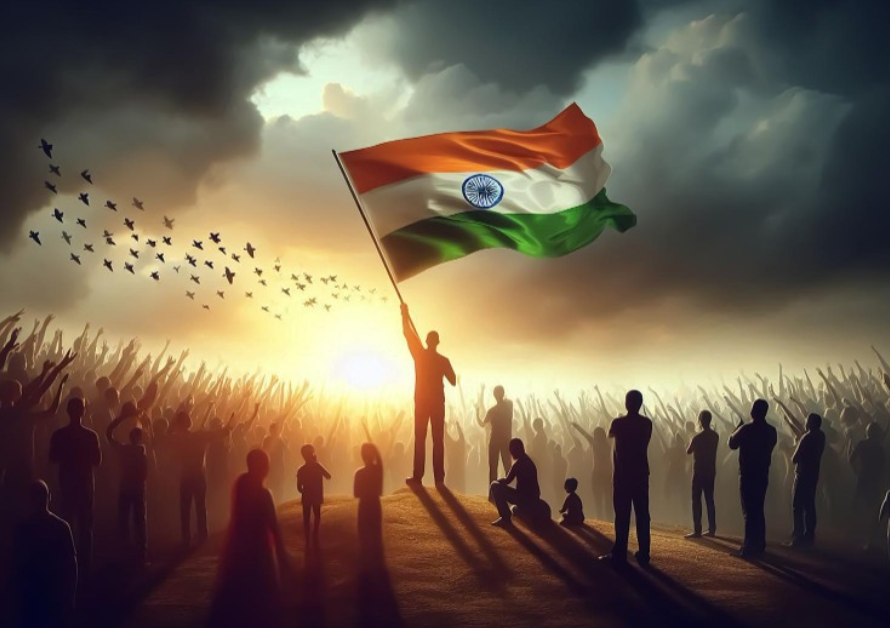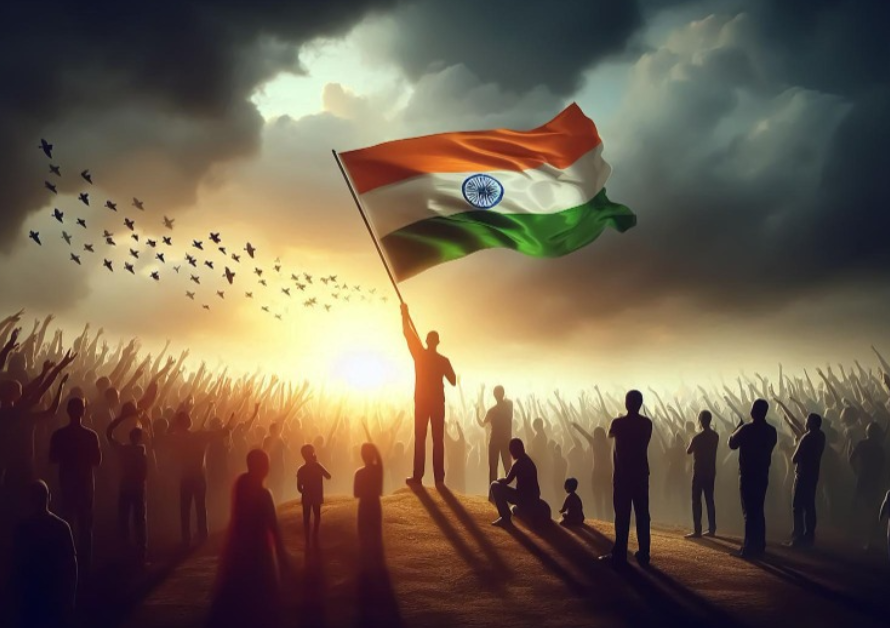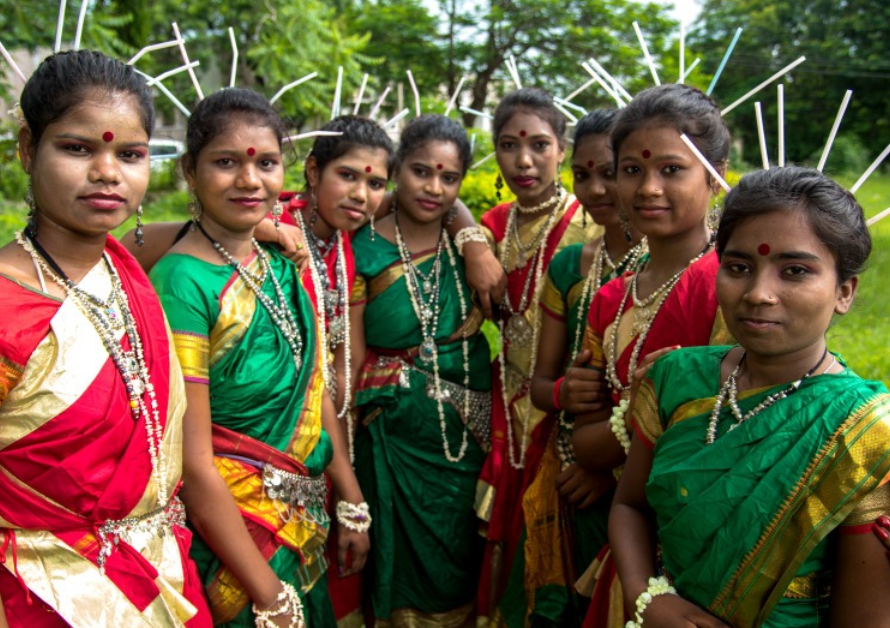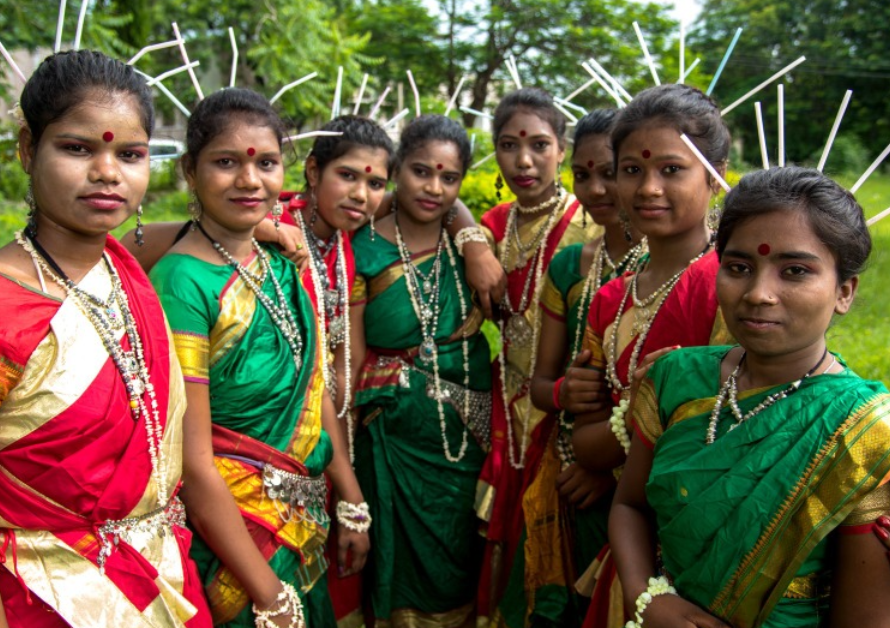A Nation’s Gratitude
A grateful nation salutes the great hero of the Indian freedom struggle, Netaji Subhas Chandra Bose. His courage, leadership, and sacrifice are priceless treasures in the history of India’s independence movement. Netaji not only led a rebellion against British rule but also ignited a sense of self-reliance, pride, and revolution in the hearts of Indians. His ideals and vision continue to inspire us today.
The Indian National Army: The Pillar of Freedom
Netaji proclaimed, “Give me blood, and I will give you freedom.” This slogan sparked a wave of revolution across the country.
1. Military Revolt and British Fear
The Indian National Army (INA) sent a clear message to the British Empire that India’s struggle for independence was not confined to non-violence. Military action and revolutionary activities shook the British administration to its core.
2. Patriotic Wave Among Soldiers
The influence of the INA ignited patriotism among Indian soldiers in the British Army, causing British rulers to lose faith in their loyalty.
3. Weakening the British Empire
Netaji and his army’s struggles eroded the British Empire’s foundation. He believed independence could only be achieved when Indians united to fight for their rights.
Why Was Netaji’s Contribution Undermined?
While Netaji’s efforts were unparalleled, the credit for India’s independence often focused on Gandhi and Nehru’s non-violent movements.
1. Political Prioritization
Netaji’s uncompromising approach — freedom at any cost — clashed with Congress leadership, which prioritized a non-violent approach.
2. Key Decisions by Gandhi and Nehru
- Accepted partition, ignoring the sentiments and future of Hindu society.
- Allowed the formation of Pakistan as a Muslim nation while failing to declare India as a Hindu nation.
- Supported policies enabling Muslims to stay in India post-partition, initiating appeasement politics.
3. Suppressing Netaji’s Legacy
Netaji’s contributions were sidelined to give prominence to Congress leadership at a national level.
Muslim Appeasement and Decline of Hindu Society
From partition until recent decades, appeasement politics weakened Hindu society.
1. Special Privileges for Muslims
Despite partition, Muslims were allowed to stay in India, and their communal demands were repeatedly appeased.
2. Constitutional Amendments
Several amendments, under the guise of secularism, were discriminatory against Hindu society.
3. Misuse of Secularism
While Hindu customs were often targeted, other communities received special protection.
Netaji’s Vision for India
Netaji envisioned an India that was self-reliant, strong, and united.
1. National Unity and Cultural Revival
India could only become strong by reviving Hindu society and preserving its cultural identity.
2. Economic and Military Strength
Netaji emphasized economic and military self-reliance to make India a global power.
3. Equal Rights
He advocated for equality and rejected appeasement politics based on religion or caste.
Reviving Netaji’s Legacy
As India rises as a global power, remembering Netaji’s legacy is crucial.
1. Rewriting History
Netaji’s and INA’s contributions must be highlighted and given their rightful place in history.
2. Moving Beyond Appeasement
To realize Netaji’s vision, India must transcend communal politics and become self-reliant.
3. Empowering Hindu Society
To correct the wrongs of partition, empowering Hindu society and restoring its cultural identity is essential.
Netaji Subhas Chandra Bose’s life and sacrifices embody the true essence of leadership. His relentless pursuit of freedom, uncompromising ideals, and vision for a strong, united India remain indelible in the soul of the nation.
Adopting Netaji’s vision is the only way to create a strong, united, and self-reliant India. Rising above communal politics and focusing on national pride, unity, and equality will pave the way for India’s prominence as a global leader.
Jai Bharat! Jai Hind!
For more blogs, please visit www.saveindia108.in.
To join our WhatsApp group, click here.







